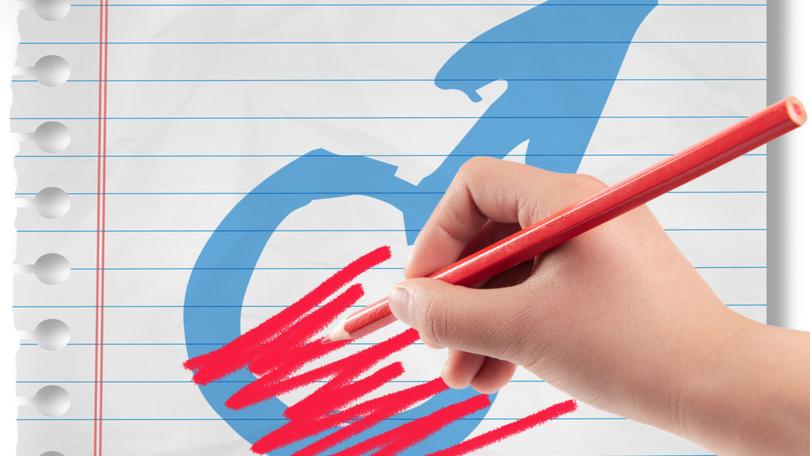Why the sex on your birth certificate is now meaningless after NSW Parliament changes
The legislative changes will now make it possible for any person born in Australia bearing male genitalia to be legally classified as female.

Sexes listed on birth certificates will soon be allowed to be swapped across Australia at will, a shift that opponents and supporters believe will lead to significant, long-term changes in the perceptions of the difference between men and women.
The NSW parliament became the last state or territory, on Thursday, to remove the requirement that sex-change surgery is required before a person’s legal sex can be changed.
The changes will mean that any person born in Australia who has a penis and testicles can be legally classified as female.
Sign up to The Nightly's newsletters.
Get the first look at the digital newspaper, curated daily stories and breaking headlines delivered to your inbox.
By continuing you agree to our Terms and Privacy Policy.Under the Equality Legislation LGBTIQA+ law, adults can change their birth certificate once a year, as many times as they want. If they don’t want to be male or female, they can be registered as non-binary or not specified.
Parents can switch children’s registered sex if they have a counsellor’s endorsement. If one parent disagrees, a judge can decide.
National shift
Western Australia passed similar changes last month, although the law hasn’t come into effect. When it does, the body which legally recognises sex changes, the Gender Reassignment Board, will be abolished.
Queensland changed its law last year, Victoria in 2020 and Tasmania in 2019. The ACT and Northern Territory have similar rules to NSW. In South Australia, six months treatment from a psychologist has been required since 2017 to change the sex listed on a birth certificate.
“For the first time in NSW, a person’s objective sex can be changed in law to correspond to their objective gender,” said shadow Attorney-General Alister Henskens. “These changes are going too far, too quickly.”
The law is opposed by some women’s rights activists, lesbian advocates and Christians, who say it undermines advancements for women, including the promotion of female sport, safe change rooms and toilets, and protections from the risk of sexual violence in the workplace and in the community.
The law is necessary because some people want a different legal sex without undergoing a sex change, according to NSW Environment Minister Penny Sharpe, one of its main proponents.
Ms Sharpe, a lesbian, said women should not fear being exposed to male genitalia in bathrooms because people born male would use toilet stalls, where they couldn’t be seen.
“People who know women’s toilets know that there is no open space,” she told parliament. “There is a cubicle - you go in, you do your business and you leave. There is no threat there.”
Women-only areas?
However opponents of the law fear that sporting organisations, charities, government departments or businesses may not be able to refuse access to women-only areas to anyone whose birth certificate states they are female. That’s a claim denied by both the government and transgender activists.
“It makes it easier for men who identify as women to access these spaces and harder, if not impossible, for women to challenge them doing so,” said Rachael Wong, the chief executive of Women’s Forum Australia, a conservative lobby group.
Individual sporting organisations deal with trans-gender participants and the new law will not change that arrangement, the government said. The option isn’t available to prisoners.
Supporters say transgender men and women are such a small portion of the population — the 2021 census identified 43,220 people as “non-binary” — that it is unlikely any individual would find themselves sharing a toilet or competing in a sporting competition with one.
As a small, vulnerable group, they need and deserve special protections too, they say, and sometimes can’t afford surgery, which costs $20,000 to $100,000, according to independent research.
“Trans people do not need surgical intervention to be who they are,” said Alex Greenwich, an independent NSW MP who introduced the law. “Some may use hormone therapy, voice therapy or a social transition to affirm their gender.”
But the statistics bureau, which conducts the census, says the 2021 figure is unreliable and it doesn’t know how many transgender people there are.
A study by the Williams Institute at the University of California, Los Angeles, estimates there are 1.6 million transgender Americans, which is the equivalent of 125,000 Australians.
Opponents of the laws viewed birth certificates as the last and most important official documents to reflect a person’s biological sex. Passports, Medicare cards and Centrelink files list whichever gender the document holder prefers.
“A birth certificate is traditionally a very official government document,” said Tim James, a Liberal MP from Sydney. “In effect it ceases to be a government document when people can change it of their own free will.”
The new law also bans publicly disclosing a person’s sexual preferences, if they were previously a different sex or worked as a prostitute.

